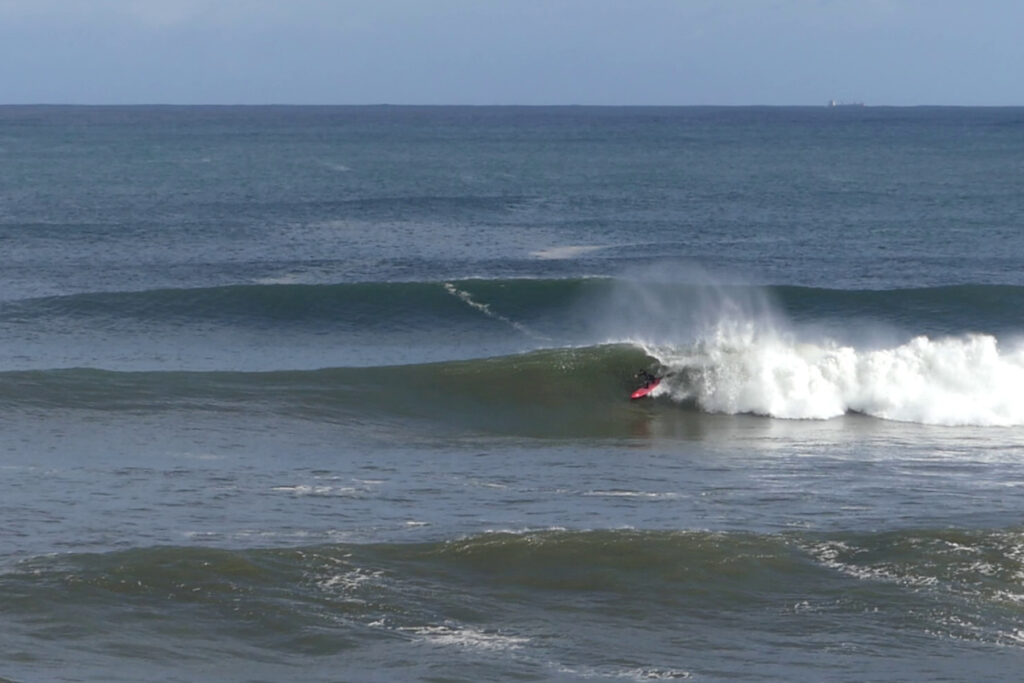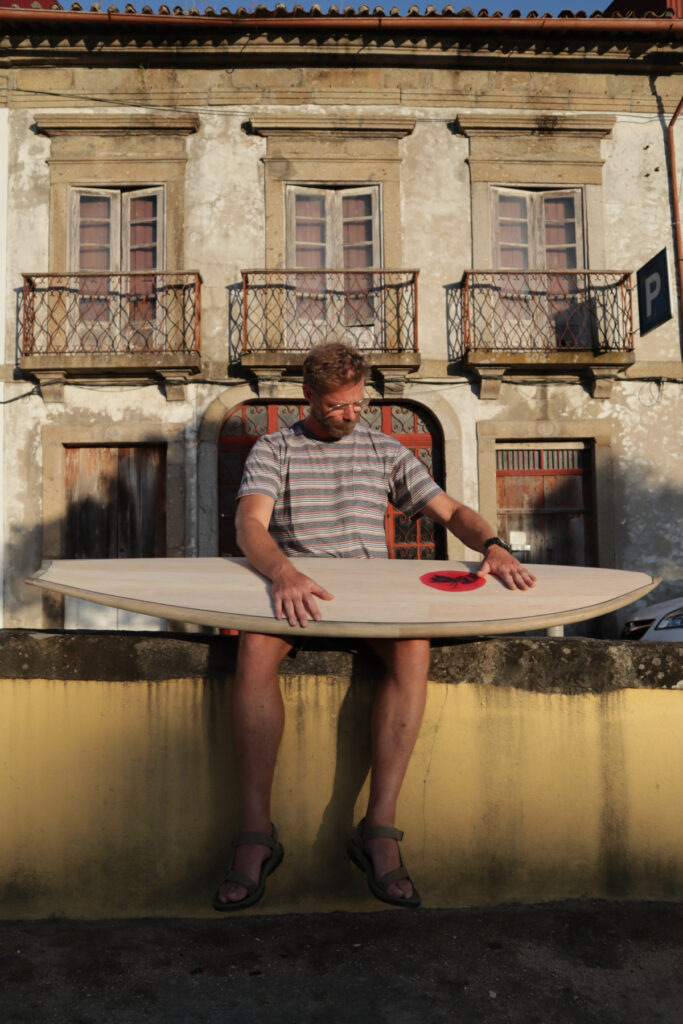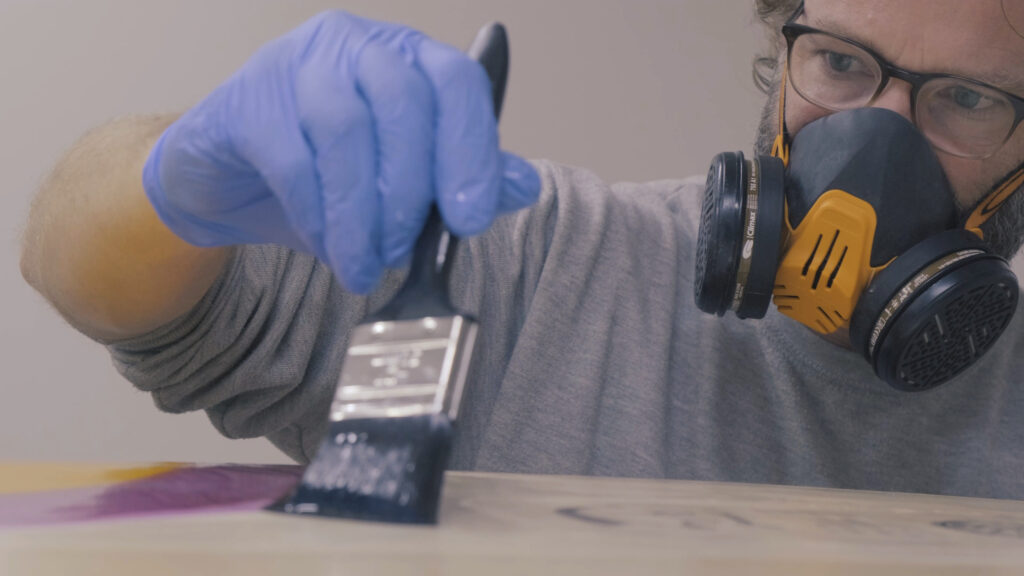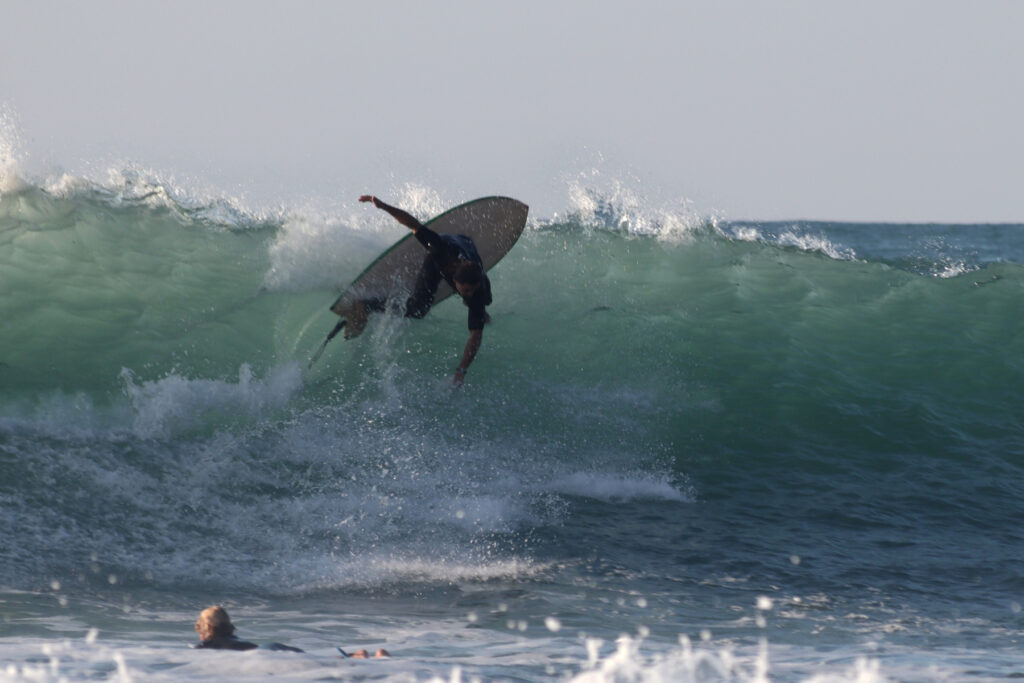EcoBoard Shaper Highlight 001: Jabalí Surfboards
by Job Verpoorte and Kailani Wetherell for Sustainable Surf, November 2023

We’re always stoked to highlight our EcoBoard Shapers because without them the EcoBoard Project and Sustainable Surf would not be what it is. Which is why we’re thrilled for this week’s EcoBoard Shaper Highlight: Job Verpoorte of Jabalii Surfboards.
‘Jabalí Surfboards’ is Job’s way to combine his love for science and creation with the pleasures of surfing and woodcraft –
When asked how this all started here’s what the incredible Dutchman living in the north of Portugal had to say:
“Everything started in 2012…I’d been living and working in Eastern and Central Europe for 10 years spending lots of time snowboarding. Upon returning home to The Netherlands, there were no mountains or snow so I was in search of alternative sports. I ended up taking surf lessons during a summer trip to Spain and was hooked.
After completing my degree in Chemical Engineering and Chemistry, I had been climbing the ladder in the engineering and construction industry for years. At a certain point I realised I was mainly busy directing, reporting, and getting sucked into politics, and not doing what I truly enjoyed: engineering and creating.

I had already started evening courses in traditional woodcraft, which helped me relax and release stress. Then, one afternoon I watched an episode of ‘Growing’ with Fergal Smith who at the time was surfing a wooden board. It was like watching that allowed all the dots to connect and I suddenly knew what direction I was going to take.
That career change was one of the best decisions I’ve made in my entire life.
I started making boards in 2015 and built the first ones closely following the ideas and method of Paul Jensen. Built on my love for finding proper solutions for difficult problems, I set out to challenge these ideas and methods in search of progress and improvement.

My aim from the inception of Jabalí was to create a viable wooden alternative for mainstream foam boards. Now through engineering and experimenting, my building method has evolved to a level that allows me to craft longboards and shortboards that are stronger, lighter, and more durable than its foam equivalents.
I like to use the comparison if competition surfing is Formula 1, then big wave surfing is Space Exploration; and just like a rocket, the surfboard has to be strong yet light and extremely reliable to navigate the extreme forces of nature. As I’ve never really been interested in competition style shortboards, I took the knowledge that I did have in creating boards and teamed up with Tony Butt, a big wave surfer and environmental activist to explore that side of performance surfing.
Which brings us to where Jabalí Surfboards is in November 2023.
The Ecoboard Project by Sustainable Surf have been instrumental in putting ecofriendlier surfboards on the agenda in the surf industry, both in terms of crafting and materials. Their Gold Level accreditation adds recognition for my efforts building ecofriendlier surfboards, as well as credibility towards customers looking for such boards.
My surfboards are a step in the right direction with their durability, wood core, and better epoxy, but there is a long way to go before they become fully eco-friendly. Until we get there my main contribution is to build boards for my customers and tell the story that you can surf wonderfully on alternative boards, and help create a better world.

For those that don’t know, wooden surfboards are a significantly more positive alternative to the traditional board. Made from sustainable materials that produce less environmental harm during construction and while they’re being used. Conventional surfboards, on the other hand, are petroleum-based products, namely styrofoam and fiberglass. Studies show traditional surfboard production can emit up to about 1.08 million metric tons of CO2 per year whereas wooden surfboards can emit approximately 93% less CO2 than petroleum-based boards (Bozman 2).
Beyond being an eco-friendly alternative, wooden surfboards also closely connect us with the roots of where surfing started. Dating back to AD 400, Polynesians brought surfing to Hawai’i where boards were made out of wood from local trees, a popular type being koa wood. Originally known as he’e nalu (Hawaian for surfing, wave-riding) these wooden boards were heavy and made simple. Modern advancements allowed for the introduction of Balsa Wood which was the transition to lighter boards and more dynamic ones we have today. Jabali Surfboards is a reminder of the rich history of surfing but also of the eco-friendly alternatives that exist in today’s surfing industry.
So if you ever find yourself in Portugal be sure to take a moment and stop by Job’s atelier in Braga and check out Jabali Surfboards. And in the meantime be sure to check out the other cool stuff we have going on with the EcoBoard project!
Words by: Kailani Wetherell
Sources: